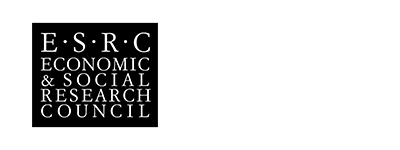Authored by Sarah Bell
As we approach Christmas 2017, I thought it would be a good time to pause and reflect on what has been a busy but fantastic year for Sensing Nature.
When I started this project back in November 2016, I had no idea that it would generate so much enthusiasm or momentum. It’s both lovely and inspiring to go into 2018 knowing that the findings have so much positive potential to change the way we understand, enable and promote more inclusive nature experiences.
At the beginning of the year, I was lucky to take part in Guide Dog UK’s MyGuide Level 1 and 2 training, broadening my awareness and ability to guide and support people living with various forms and severities of sight impairment in nature, and otherwise.
I have been putting these skills into practice over 2017, both through volunteering with varied activity groups and during the in-depth fieldwork that has kept me on my toes (and the trains) for the last few months. Over 30 people have taken part in these interviews. For each person this has included an initial interview exploring what nature is to them and how this has changed over time. Many have also then taken part in a second interview within a setting that they have identified as important for them in facilitating positive nature encounters.
These interviews have generated rich insights into how and why time spent in nature can contribute to feelings of wellbeing (or otherwise) in the context of life with sight impairment, and how we could be promoting such opportunities more widely.
I have been lucky to share some very early findings at events such as the ‘Measuring Wellbeing’ seminar organised at the Royal Geographical Society in April, this year’s International Medical Geography Symposium in Angers in July, and a session we convened at this year’s annual Royal Geographical Society conference about ‘Sensing and Making Sense of Nature’ in London in August. I am now looking forward to starting the in-depth analysis phase in the New Year to make the most of all the interview discussions and contributions.
Along the way, I have also come across some fantastic work undertaken by other organisations to promote such inclusive opportunities. This has ranged from Thrive’s resources for gardening with sight impairment, the Bat Conservation Trust’s guidance for organising inclusive bat walks and species monitoring efforts, the ‘Touch to See’ nature books produced by Living Paintings, Sport England’s ‘Parkrun’ success, and a wealth of resources produced by the Sensory Trust to inspire and enable more multisensory nature connections amongst people with varied sensory priorities and needs.
Other organisations, such as the New Zealand Blind Foundation, Cumbria’s Bendrigg Trust, and Cornwall’s Blind at Sea group, have demonstrated brilliant approaches to promoting a sense of adventure in nature. Whether it’s sailing, waterskiing, climbing, caving or other so-called ‘risky’ activities, they are able to balance risk with the rawness of experience to promote opportunities for nature immersion and achievement.
Many organisations that I’ve spoken to are keen to improve their approaches to enabling more inclusive multisensory experiences in nature. A range of efforts are being made to encourage this, for example through the Heritage Ability programme in south west England, and the Woodland Trust’s Charter for Trees, Woods and People.
The importance of such efforts was a key topic during our lively two-day “Nature Sense” workshop at WWT Slimbridge. We organised this in collaboration with the Royal Society for the Protection of Birds, the Wildfowl and Wetland Trust, and Andy Shipley, Visually Impaired Coach, Facilitator & Sensory Explorer. Throughout the workshop, we identified a range of opportunities to tune into and experience pleasure in nature. These focused on using our often neglected, more dormant non-visual senses, be it through sound, scent, touch or movement, appreciating nature’s charisma in alternative ways.
We’ve also had some great guest pieces on the Sensing Nature news page, including people’s own experiences of nature in the context of sight impairment, encounters with less tangible nature in the form of visual hallucinations experienced as a result of Charles Bonnet Syndrome, and the importance of multisensory communication.
Building on some of the outreach activities that we have already embarked on this year, such as Nature Sense, speaking to Walking for Health, and our role at this year’s Visionary conference, we are currently planning a whole range of activities for next year. These will each focus on different types of nature experience, including more inclusive design of urban nature, broadening access to ‘adventure’ nature, and producing guidance for existing walking groups to better support walkers with sight impairment. We’re even exploring opportunities to put on “Nature Sense 2”, to build on the productive discussions held so far around nature connection in areas of nature conservation.
We are always keen to include guest pieces on the Sensing Nature website, whether it’s stories, poems or songs about your own experiences of nature with sight impairment, or examples of best practice from organisations or sites who are successfully opening themselves up in a genuinely inclusive way. Do get in touch if you’d like your work to be included, we would love to hear from you.
In the meantime, a very happy Christmas to all and wishing you all the best for the New Year!



